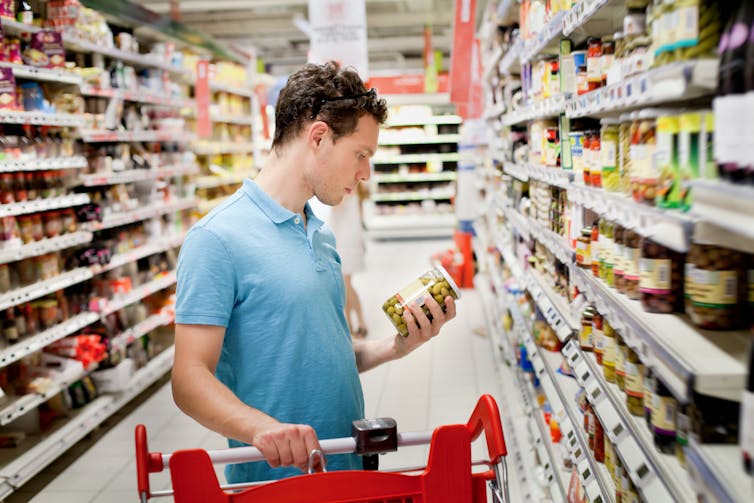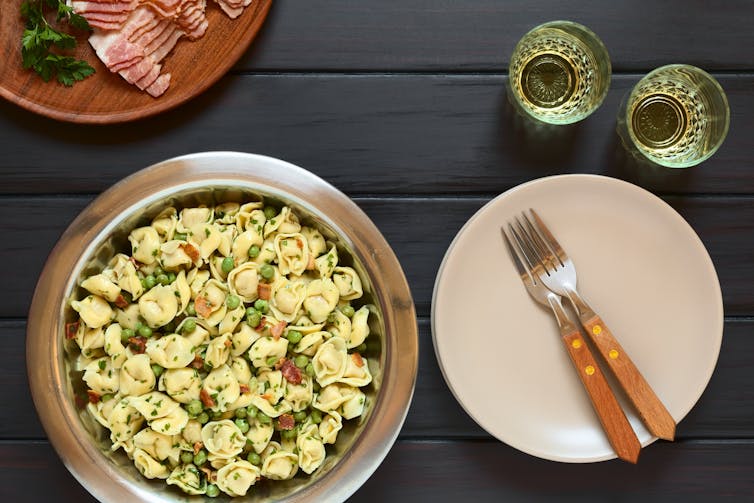Holidays are often a time of overindulgence and weight gain. One of the reasons is groups of people who eat together tend to eat more. So, like me, you are probably looking to shed a few kilograms right now.
The easiest way to do this is to alter your diet so that you do not take in excess calories and remove grains, refined carbohydrates and sugar from your diet.
Here are eight evidence-based ‘lifestyle hacks’ – ways you can change about what you see and do – that will help to prevent you eating more than you plan or need to. You might be able to nudge yourself towards losing that extra flab and keeping it down throughout the year.
Enjoy!
Scott
Read more: Will you gain weight this Christmas?
These recommendations were originally posted in an article on The Conversation, and are shared under a Creative Commons license.
1) Plan your shopping list
If you’re hosting, setting out more food than you and your guests could reasonably eat is a surefire way to lead people to overeat.
Pre-plan your meals and food offerings. Make sure you stick to your shopping list and don’t shop for food when you’re hungry, or you’re likely to make impulse buys.

2) Don’t bring it into the house
If Santa brings chocolate, lollies and candy canes, of course people are going to eat them!
Start by limiting both the type and amount of food you bring into the house. And if you do slip up, keep the junk food out of view because if you can’t see it, you’re less likely to want to eat it.
3) Reduce portion sizes
Serve more and you’ll eat more, with no increase in satisfaction. One study found doubling the serving size resulted in people eating 35% more.
Read more: Health check: do bigger portion sizes make you eat more?
Conversely, if you reduce portion sizes, you’ll eat less. Just make sure the portion size doesn’t get too small, otherwise you’ll start compensating and end up eating more.
4) Use smaller plates
In situations where you’ll be self-serving, choose a smaller plate size. With a smaller area, you’re likely to end up with less food on your plate.

Conversely, doubling the sizes of plates and bowls leads to higher food consumption – 13% for plates and 51% for bowls.
5) Use tall, thin glasses
Tall, thin glasses look like they contain more volume than short, fat ones. Drinking out of champagne glasses not only looks elegant, it also encourages you to drink less than you otherwise might.
6) Use the power of social influences
Be aware of the example you’re setting for others, and how others’ habits affect you. People tend to match food consumption of people around the table.
In conditions where others are eating a lot, this can lead to overeating, so consider drafting a “designated eater” who sets the example for all.
7) Beware the multiple effects of alcohol
What is a holiday feast without alcohol? A lot less fattening! Alcohol contains 29 kilojoules per gram, or about 954 kilojoules for a 250 ml glass of wine.
Read more: What’s the most value for money way to tackle obesity? Increase taxes on alcohol
Alcohol also numbs the stomach and delays the signals to your brain to tell you you’ve eaten enough, resulting in overeating.
8) Cut down on processed foods
Reducing the energy density of foods can be an easy way to reduce the number of kilojoules you consume without giving up on the satisfaction of a filling meal.
Research shows people who replace processed foods with a more natural alternative find it easier to limit their intake and therefore maintain their weight or lose weight.
Chris Dubelaar, Professor of Marketing, Deakin University and Stephen S Holden, Adjunct Professor, Macquarie Graduate School of Management

